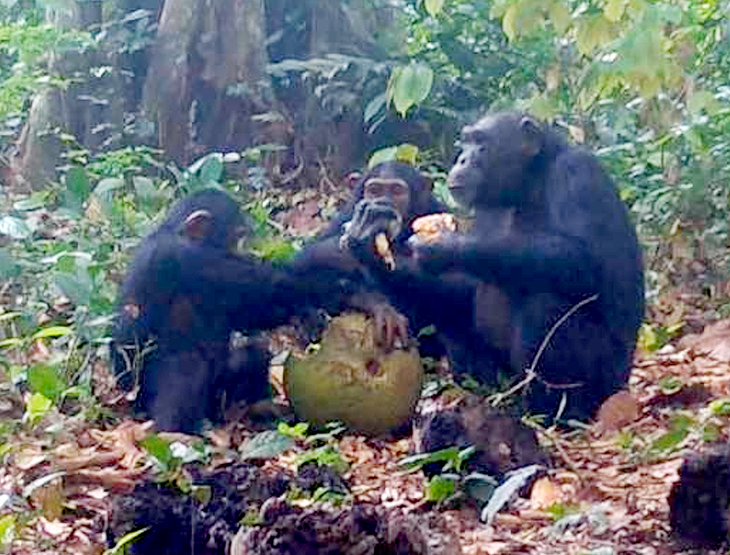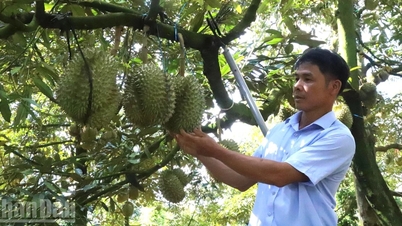
Sharing of alcoholic fruit occurs between chimpanzees of all ages and sexes - Photo: Anna Bowland/EurekAlert
According to The Guardian (UK), scientists from the University of Exeter (UK) recorded a group of chimpanzees in Cantanhez National Park (Guinea-Bissau, West Africa) eating and sharing African breadfruit, a very large, fibrous native fruit that can produce ethanol when overripe.
Published in Current Biology, the team said they used an automated camera system and recorded at least 10 instances of chimpanzees sharing the fruit. When they analyzed the fruit samples, they found that the alcohol content could be as high as 0.61% by volume, equivalent to a light beer.
"Chimpanzees don't often share food, so sharing alcoholic fruit may have a social significance," said Dr. Kimberley Hockings, a member of the research team.
Although not enough to make people drunk, the amount of alcohol in the fruit is still enough to create a light, relaxing feeling, similar to the "tipsy" feeling when people drink beer.
"In humans, drinking alcohol not only stimulates dopamine and endorphins, chemicals that create feelings of happiness, but also helps form social bonds through parties and meetings. Now, seeing that chimpanzees also behave similarly, scientists have asked: are they experiencing something similar?", said researcher Anna Bowland.
In the videos , fruit sharing was seen across all sexes and ages. Two adult females, Chip and Até, even chose the fermented fruit over the larger, underripe piece. A group of three males, Mandjambé, Gary, and Bobby, were observed “fighting” over the ripe fruit with some fierceness, but all eventually got a taste.
Chimpanzees gather to eat alcoholic fruit - Video: University of Exeter
This finding suggests an interesting hypothesis: could the behavior of organizing feasts, eating communally with mild stimulants, be an evolutionary trait that emerged from a common ancestor between humans and chimpanzees?
Although the number of observations is small, the research team believes that this is an important basis for expanding future research, answering questions such as: do chimpanzees deliberately seek out fermented fruit? How do they metabolize ethanol? Or does this behavior help strengthen social relationships or group roles?
“If this behavior is intentional and socially beneficial, it may be the earliest stage of one of the oldest human traditions: partying,” Dr. Hockings shared.
Source: https://tuoitre.vn/phat-hien-tinh-tinh-cung-nhau-nhet-de-ket-than-20250422215928516.htm



![[Photo] National Assembly Chairman Tran Thanh Man attends the VinFuture 2025 Award Ceremony](/_next/image?url=https%3A%2F%2Fvphoto.vietnam.vn%2Fthumb%2F1200x675%2Fvietnam%2Fresource%2FIMAGE%2F2025%2F12%2F05%2F1764951162416_2628509768338816493-6995-jpg.webp&w=3840&q=75)
![[Photo] 60th Anniversary of the Founding of the Vietnam Association of Photographic Artists](/_next/image?url=https%3A%2F%2Fvphoto.vietnam.vn%2Fthumb%2F1200x675%2Fvietnam%2Fresource%2FIMAGE%2F2025%2F12%2F05%2F1764935864512_a1-bnd-0841-9740-jpg.webp&w=3840&q=75)

































































































Comment (0)